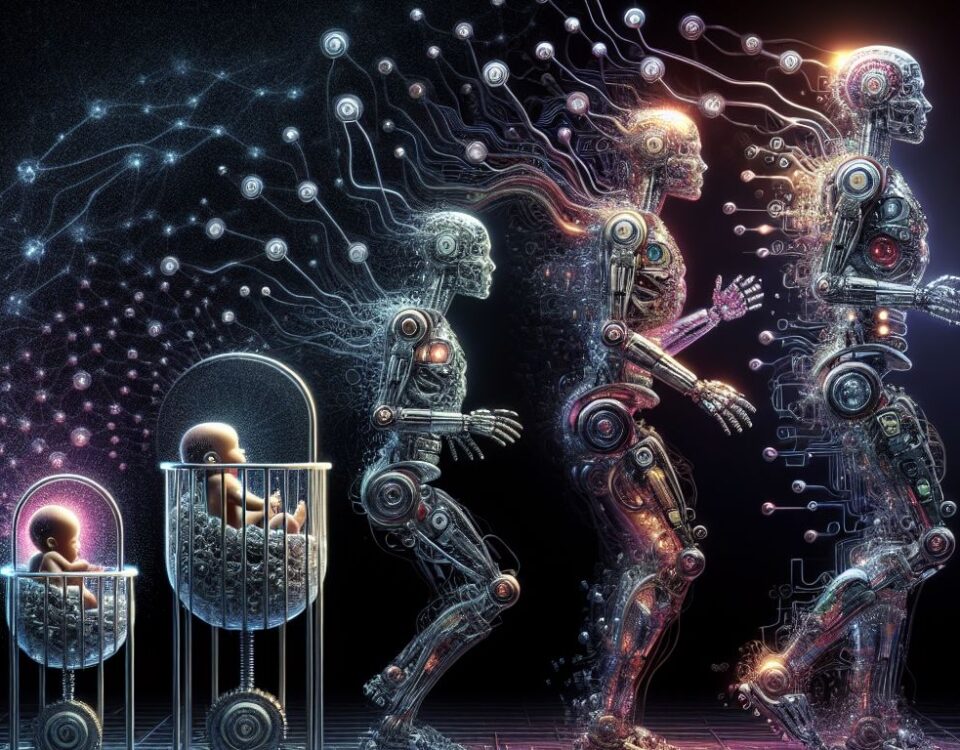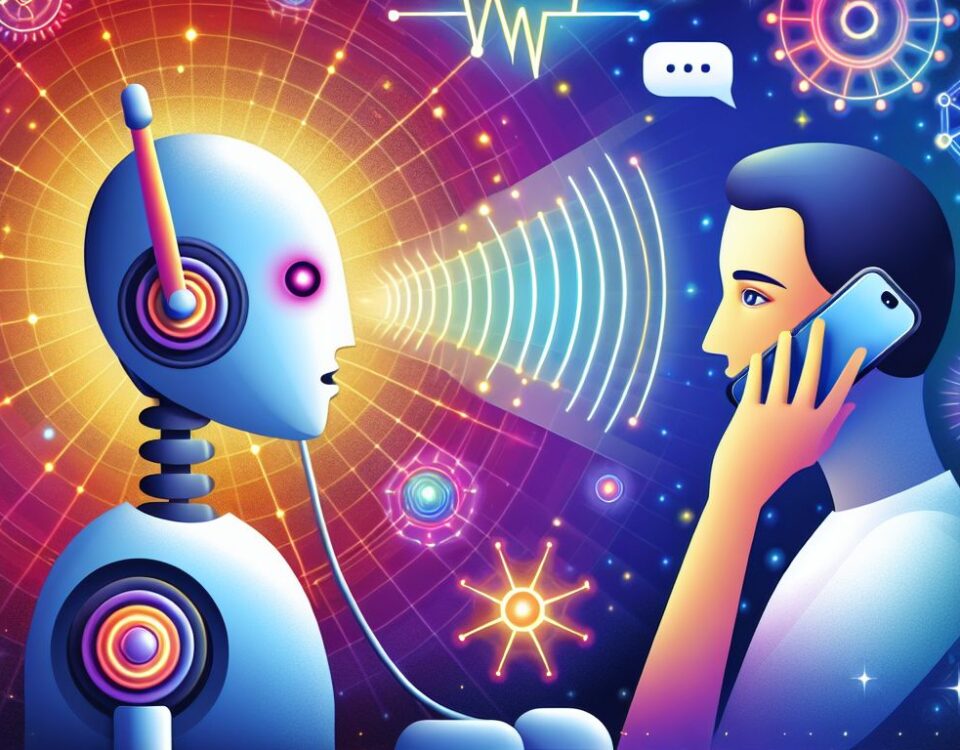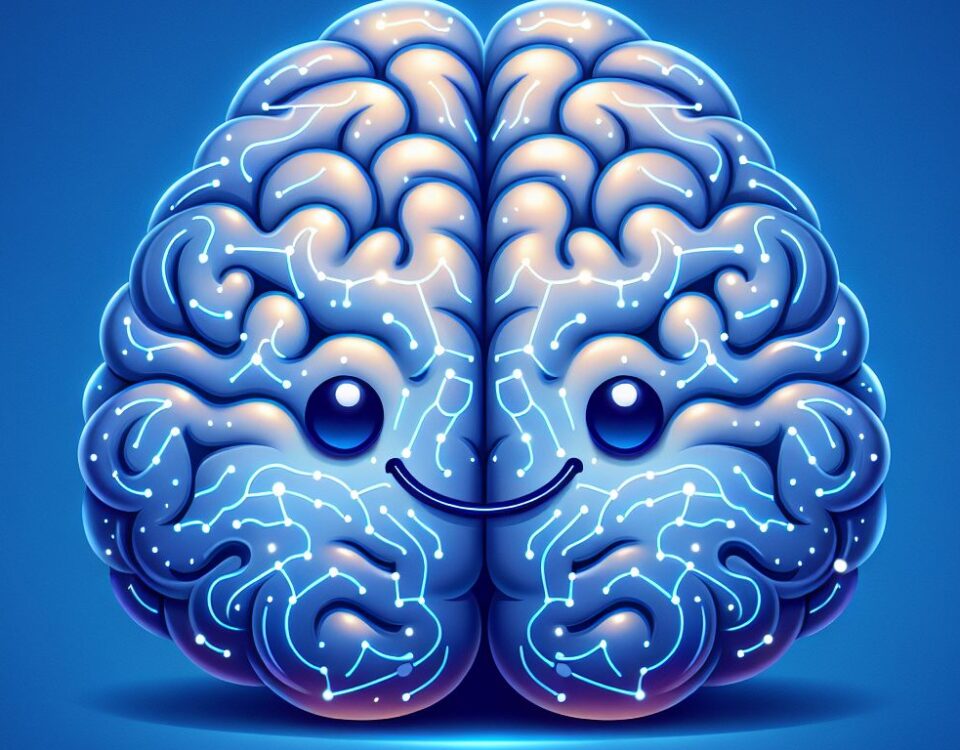The Age of AI: The Emergence of AI Chatbots

Next Generation of AI: ChatGPT-4 and DALL·E 3
November 21, 2023
Boosting Brand Engagement With AI Influencer Marketing
November 23, 2023
How AI Chatbots are Becoming the New Scribes of the Digital World
In the ever-evolving landscape of digital technology, one phenomenon that has captured the imagination of tech enthusiasts, writers, and marketers alike is the AI chatbot capable of writing text. Once a figment of science fiction, these sophisticated programs are now a reality, profoundly altering the way content is created and consumed.
The Rise of the Writing Machines
AI chatbots, designed to simulate human conversation and interaction, have been around for a while, assisting with customer service, providing information, and even offering companionship. However, the leap from performing basic tasks to composing coherent and contextually relevant text has been monumental. The catalyst? Advances in machine learning and natural language processing (NLP) that have enabled chatbots to understand and mimic human language patterns more accurately than ever before.
From Simple Replies to Complex Narratives
The capabilities of AI chatbots have skyrocketed from generating simple, pre-programmed responses to crafting complete articles, stories, and reports. These chatbots can analyze vast amounts of data, learn from interactions, and produce written content that often rivals that of their human counterparts. The implications for content creation are staggering—businesses and content creators can leverage these bots to scale their writing efforts, personalize communication, and offer instant content on demand.
SEO and the AI Chatbot
The impact of AI chatbots extends into the realm of Search Engine Optimization (SEO). With their ability to swiftly produce SEO-friendly content, these chatbots can be invaluable assets for digital marketers. They can generate keyword-rich texts, ensuring that the content not only resonates with the audience but also ranks well on search engine results pages (SERPs).
Crafting Contagious Content
AI chatbots don’t just stop at factual accuracy and SEO compliance; they are also learning the art of creating engaging, shareable content. By analyzing patterns of viral content and applying those principles, AI chatbots can compose articles and blog posts that have the potential to capture the audience’s attention and encourage sharing across social platforms.
Ethical Considerations and the Human Touch
While the abilities of AI chatbots continue to impress, they also raise questions about authenticity and the role of human writers. As these bots become more prevalent, the emphasis on ethical usage and transparent disclosure of AI-generated content becomes paramount. Moreover, despite the sophistication of AI, the human touch in storytelling and nuanced expression remains crucial. AI chatbots serve as tools to augment human creativity, not replace it.
Looking Ahead
As we look to the future, it’s clear that AI chatbots will play an increasingly significant role in content creation. With their efficiency, scalability, and growing intelligence, they offer an exciting glimpse into the potential of AI in the realm of writing. Businesses, marketers, and writers must not only understand and adapt to this technology but also ensure that it is used responsibly and enhances—rather than diminishes—the human experience.
In conclusion, AI chatbots that write text represent a turning point in digital content creation. Their integration into our digital lives is no longer a matter of “if” but “when.” As they continue to advance, they challenge us to redefine creativity, authorship, and the very essence of human-machine interaction. How we respond to this challenge will shape the future of writing in the AI era.
Get the power of AI for your marketing campaigns
Simplify campaign management and maximize results with AdMind. Create high quality content, generate images, integrate digital channels, automatize editorial plans, track performance, and optimize for maximum success.






